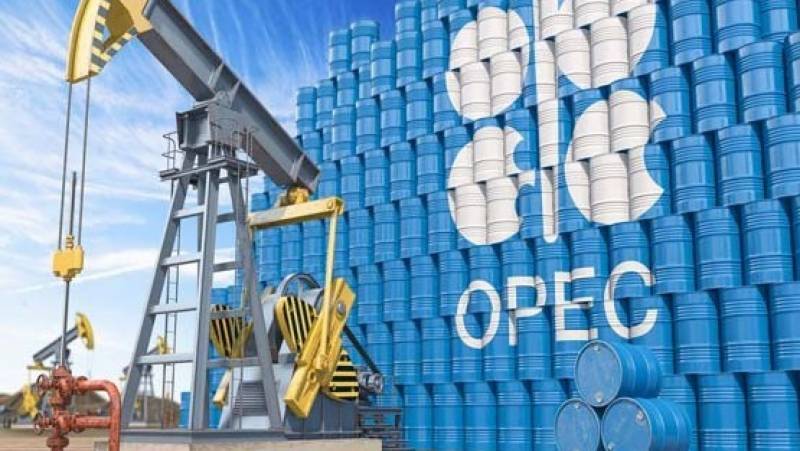1. Oil
The oil industry itself is no stranger to turbulence. Oil producers have had to navigate through rough seas as they deal with everything from fluctuating demand to geopolitical tensions. Still, as the industry struggles to climb out of its hole, oil producers are maintaining full throttle. The implications of this move, strategically significant for the global economy in terms of energy markets and environmental policy have far ranging impacts. This article explores why oil producers are holding their own, the difficulties they confront and what it means for future of industry.
2.The Real Status of The Oil Market
The Global Supply End Will Watch Puberty
Oil is all about supply and demand, on a knife edge. Over the last few years, global demand has become increasingly unpredictable being influenced by a variety of factors from the transition towards renewable energy to the economic slowdown in key markets and COVID-19 consequences. At the same time, oil producers continue to pump out crude at steady rates.
Ticker Security Last Change %Chg XOM EXXON MOBIL CORPORATION 73.90 +0.67 +0.91% CVX CHEVRON CORPORATION 123
In terms of oil production, a few countries lead the way: Saudi Arabia, Russia and USA. Two of these countries majorly affect global oil prices and production plans. Those decisions can send shockwaves through the global economy as well.
3.The Oil Producers Have Some Problems
a.Geopolitical Tensions
Oil fields in the middle east are always at threat which has potential to stop manufacture and supply chain. However, global supply chains might be less inclined to benefit due the difficulty attaining outputs for countries involved in conflicts.
b.Economic Pressures
The economies of many oil producing countries are heavily dependent on the revenues generated by their own production of crude. These nations are under pressure to maintain high levels of production due to economic sanctions, volatile oil prices and competition from alternative energy sources even when it might not make much sense economically.
c.Environmental Concerns
There is a renewed global push for cleaner energy sources. So long as governments and corporations work to limit CO2 emissions, the use of fossil fuels such as oil will have to decrease. Oil producers understand that market is changing its character, however, there the dilemma between today’s production and tomorrow sustainability has become (and will be) even more sophisticated.
4.Why Oil Carnage Continues, Advises Mike Shedlock
a.Stabilizing Global Markets
Stabilizing global markets is a key reason that oil producers are keeping output at elevated levels. If oil production falls suddenly, prices could rise drastically inducing economic instability in non-producing as well as producing countries.
b.Meeting Existing Contracts
Oil producers are often under long-term contract with customers. These contracts bind them to supply a fixed quantity of oil irrespective of market conditions. By keeping production lower, this guarantees that producers will be able to satisfy these commitments without penalties.
c.Strategic Stockpiling
Canadian oil production use to steady times for building up strategic reserves. These stockpiles can then be used to fend off future market disruptions or geopolitical tensions, providing producers with a cushion should there be rough weather ahead.
5.Impact on Global Oil Prices
a.Price Volatility
Price volatility, on the other hand, can be a consequence of capacity constraints that prevent supply from adjusting to changes in demand. This always-on production does help suppress a potential price spike, but in an oversupplied market it also means prices can crash.
b.Influence of OPEC
OPEC is responsible for bringing stability in oil prices. OPEC has targeted prices by managing production among member countries. That said, the output of ASM is indeed determined by the collective interests and concerns but it does not mean members cannot take steps on individual levels.
6.What To Expect For The Oil Industry Moving Forward
a.Change towards Sustainable Sources of Energy
The future for oil looks challenging with the global trend towards renewable energy sources shows no sign of abating. The oil as the demand for solar, wind or any other green technology can push out slowly invested more and mor erecently from every country
b.Technological Advancements
New drilling and extraction technologies may be able to keep production going while lessening environmental damage. Some methods of enhanced oil recovery (EOR) enable producers to get more out of conventional fields, thereby helping these fields deliver for longer.
c.Economic Diversification
One of which is trying to diversify its economy, after working out that it relies a bit too much on oil revenues. These countries continue to pursue diversification into areas such as tourism, manufacturing and technology so they can become less reliant on oil prices.
Considerations for the environment and society
d.Sustainability Initiatives
This is because sustainability initiatives from oil producers have become more and prevalent in a bid to cut down on the environmental impact of their operations. It argues for greater efforts to reduce greenhouse gas emissions, investment in carbon capture and storage (CCS) technology, as well as increased energy efficiency.
e.Social Responsibility
Oil companies are waking up to social responsibility. That can mean creating a safer workplace for employees, giving back to local communities or promoting education and healthcare in the locations where they work.
It is a rather difficult one for oil producers as they balance maintaining output levels while riding out the industry headwinds and it has been underscored by an interesting mix of economic, geopolitical and strategic considerations. This shields producers from the ups and downs of prices linked to global markets (which is good for a short-term stability as well helping national fuel use contracts, but it also exposes these companies over time with price fluctuations) — or perhaps most important: long term peak demand! With the world moving towards renewables, change will also have to come to an oil industry that hopes for a dutysreaksout so it can cling on in fear — and relevance.
FAQs
1. Why might oil producers be keeping output steady?
Crude oil producers are still keeping output as high necessary to help stabilize global markets, avoid lucrative cargoes going unsold and prevent from losing storage crude; sell as usual or build an extra long term strategic reserves.
2. What is the connection between oil production and geopolitics?
Production and distribution channels can also be disrupted by geopolitical tensions which may result in supply shortages or higher prices.
3. How does OPEC effect the oil industry?
OPEC sets production levels for its member countries to help control global oil supply.
4. What Does This All Say About The Oil Industry In A Renewable Energy World?
Demand for oil in the long-term is expected to fall as more renewable energy sources come online, and so this has prompted players within the sector into looking at adopting new technologies of angle towards economic diversification.
5. Some sustainability efforts in the oil industry
Sustainable projects encompass a myriad of areas including the reduction in greenhouse gas, investment into carbon capture technology and advances in energy efficiency.





